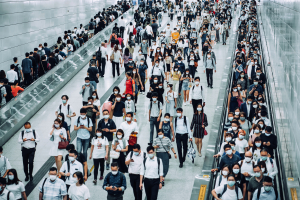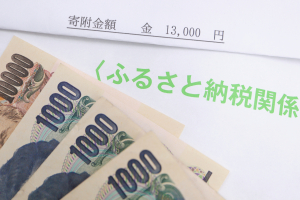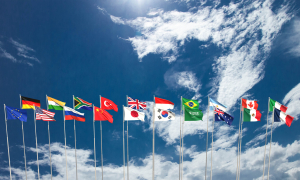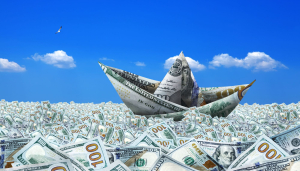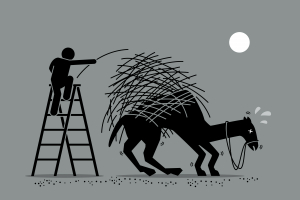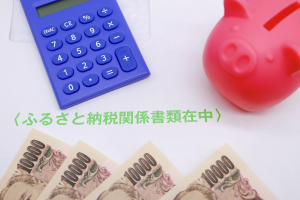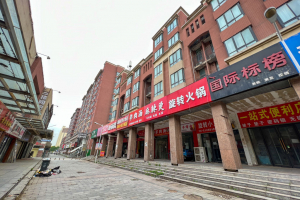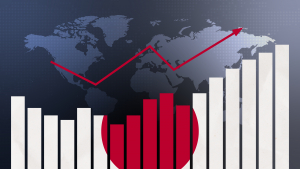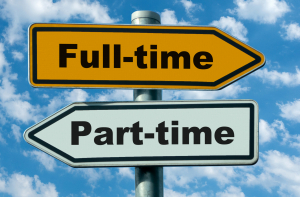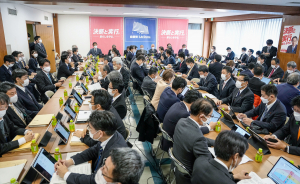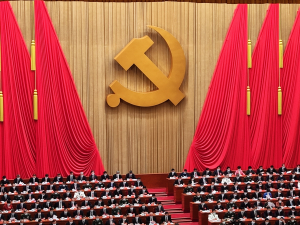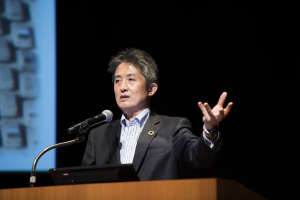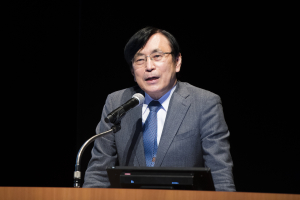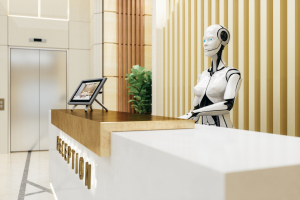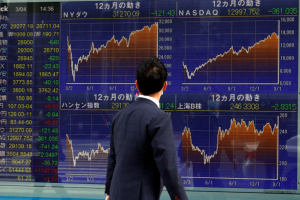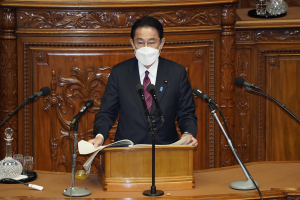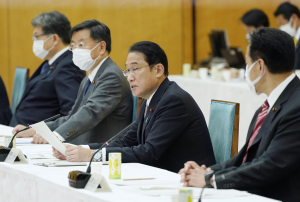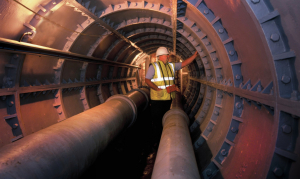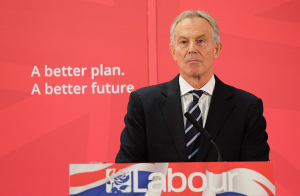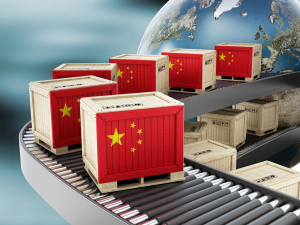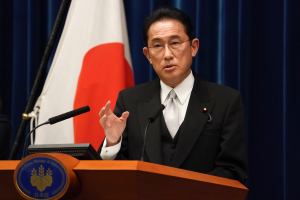
The Chinese Economy in 2022
February 3, 2022
R-2021-038E
Despite its rapid gains over the past several decades, the Chinese economy has unresolved structural issues that have exacerbated wealth gaps. Should the property bubble collapse, Ke Long warns, the economy as a whole could face tough times ahead.
* * *
Some people maintain it is only a matter of time before China surpasses the United States and becomes the world’s biggest economy. The Chinese economy is not as strong as it appears, however, and its pace of growth is slowing. One short-term factor behind the deceleration is Beijing’s pursuit of a “zero Covid” policy. By now, most major countries around the world have adopted a mitigation strategy, trying to avoid lockdowns wherever possible, even when case numbers start to rise.
China continues to hold firm to its eradication strategy, and its downward effect on the economy is becoming more pronounced. But that is not the root of China’s woes; the real challenge for the economy lies, rather, with long-term structural issues.
Return to a Command Economy?
For many years, China’s economy grew on the strength of its abundant supply of cheap labor. A vast workforce and foreign investments combined to make China the “workshop of the world.” Goods could be produced cheaply in China and exported in large quantities. This competitive advantage has been the main driver in China’s remarkable economic growth over the past few decades. As the economy expanded, per capita GDP also grew, triggering motorization once it passed $3,000. Since then, China has gradually grown into the world’s largest market as well.
The shift has not always been smooth, however. Beijing’s one-child policy, strictly enforced for years in an attempt to limit population growth, was not relaxed even after it became clear that the birthrate would soon start to decline—like in many developed economies—as people’s lifestyles became more affluent. Although the policy has now been scrapped, the change came too late. The seeds of demographic disaster in the decades to come has been sown due to the failure to respond flexibly to changing conditions.
Another potential pitfall is the priority being given by Xi Jinping to grow and strengthen state-owned enterprises. China’s remarkable growth has been achieved under the “reform and openness” policy of economic liberalization. There are signs that this policy is being reexamined, subjecting the economy to much stricter controls and prompting worries about a slowdown in economic growth.
Heavy-handed restrictions on private companies like Alibaba, Tencent, and DiDi (an app-based transportation company) in recent years have caused widespread unease among business owners. Will China move in the direction of an open, free-market economy, or are we seeing signs of a return to centralized control? The truth is that private companies are far more important in terms of creating jobs, generating tax revenue, and contributing to the growth of the economy than SEOs. If the government subjects the country’s private-sector leaders to strict controls, a dramatic slowdown will be inevitable.
Another structural problem Beijing must address is the widening of income and wealth gaps. At heart, China remains a socialist state, having been founded on Mao Zedong’s promise of “equality and prosperity.” Despite such promises, tens of millions in Mao’s China starved to death, and millions more intellectuals were persecuted. Things began to change after 1978, when Deng Xiaoping promoted reform and openness and backed the idea of xianfu lun (getting rich first), allowing for the first time the possibility that some people would become affluent before others. The new policies enabled China to become more prosperous than anyone had thought possible.
This rapid growth has widened the gap between rich and poor, though, which Beijing is now working to close under the concept of “common prosperity.” There is nothing wrong with the idea per se, but without changes to the tax code and other systematic reforms, it is little more than an empty slogan. The onus in on the Xi regime to narrow the growing disparities if the Chinese Communist Party is to retain its political legitimacy.
A Bubble Ready to Burst
Up to now, China has achieved seemingly miraculous growth in spite of these problems. But structural issues tend to be overlooked when an economy is growing so quickly. Deng Xiaoping used to remark that no argument is more convincing than growth, and many of China’s policymakers have since embraced this tenet. They have fostered growth by encouraging urban redevelopment and property development, but there has been no accompanying reforms in the system of land use and real estate taxes.
Real estate development has led to dramatic improvements in housing standards. In 1978, the average living space per person was just 3 square meters. Today, that figure has risen to over 35 square meters—in line with that of most developed countries. At the same time, however, prices for condominiums and other property have skyrocketed. Because there is no property tax, real estate investments have yielded huge profits, resulting in a grossly uneven distribution of wealth.
The Chinese real estate market is clearly experiencing a bubble. But many in China appear to believe that it can be sustained as long as there is strong demand. Unfortunately, there is no bubble that will not eventually burst. The crisis that has enveloped the Evergrande Group, one of China’s biggest real estate developers, could very well mark the beginning of the market’s collapse.
An even bigger worry may be the lack of transparency. Since news broke of Evergrande’s failure to meet its debt obligations, for instance, there has been no explanation of the situation by either the company’s managers or government officials overseeing the sector. In the absence of information from official channels, investors have had to turn to online sources of questionable reliability. The only way to dispel investor concerns is through full disclosure. Without a complete explanation, investors could panic, triggering an even bigger crisis.
The United States, Japan, and Europe have all experienced numerous economic and financial crises in the past. History shows that such crises can be contained through fuller disclosures and by identifying the causes of the crisis. China’s interests would surely best be served by preventing foreign investors from losing confidence in the Chinese economy.
China’s property prices are much too high and are clearly unsustainable. Beijing’s priority should not be to keep the bubble intact but to find a way to achieve a soft landing.
Outlook for 2022
The biggest event on the Chinese political calendar in 2022 is the Communist Party Congress in the fall, which is expected to elect Xi Jinping to an unprecedented third term as president, thanks to a constitutional amendment adopted at the 2018 National People’s Conference to repeal term limits.
The amendment’s passage does not mean that everyone agrees with the idea of scrapping the term limits. Xi Jinping must prove he deserves another term based on his political, economic, and social accomplishments over the past 10 years.
One notable achievement of the Xi presidency has been the removal of more than 7 million officials on corruption charges. At first glance, the bureaucratic shakeup may appear impressive, but the fact that so many officials had to be disciplined points to serious governance problems. Xi’s two terms also roughly coincide with the period of slower growth—labeled the “new normal”—so his economic track record has not been exceptional. The COVID-19 pandemic has transformed China’s economy and society, and unemployment numbers have soared. The real estate bubble, moreover, appears on the verge of collapse.
As Beijing seeks to tighten its grip on private companies and its citizens, I would not be surprised to see the Chinese people resist giving up the freedoms they had come to enjoy in recent years.
Given the above, I do not see China returning to rapid economic growth in 2022. In the light of developments both at home and abroad, it seems much more likely that the economy will continue to lose speed.
The first quarter, at any rate, will remain sluggish. And while no one can tell when the pandemic will end, even when it does, it is likely to take longer than expected for the economic wounds to heal. With the property bubble about to burst, the construction and related sectors that have played a key role in driving growth in recent years could enter a slump, triggering a slowdown of the entire economy the likes of which China has not seen in four decades. In their domestic speeches, both Xi Jinping and Premier Li Keqiang have repeatedly warned of tough times ahead. Such gloomy predictions could very well come true in 2022.










![[Policy Research] Water Minfra: A New Strategy for Water-Centric Social Infrastructure](/files_thumbnail/research_2023_Oki_PG_Mizuminhura_png_w300px_h180px.png)

